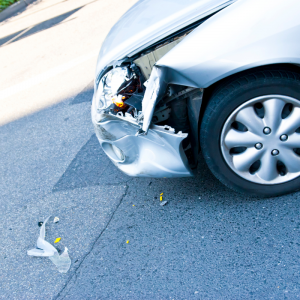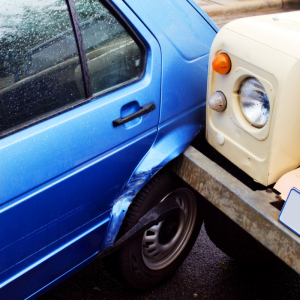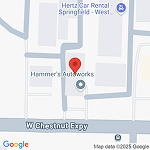We’ll start out by stating that there are differences between carmakers. The cost associated with repairs will hinge on several factors, including:
- The year of the vehicle
- The make/model of the vehicle
- The type and extensiveness of the damage
- The part(s) of the vehicle impacted by the collision
- What smart technology was affected
Hammer’s Autoworks doesn’t give estimates by photos alone for a reason. It’s impossible to give accurate estimates without inspecting, and in many cases, disassembling the vehicle to see what might be damaged beyond the obvious.
That said, it never hurts to have some emergency savings stashed aside when the unexpected happens. Consider the following a good ballpark, though with many caveats.

An Overview of Body Damage and Potential Cost
Autobody damage can occur anywhere on a vehicle. However, there are some types of damage that are more common than others. These include:
- Bumper damage (front or rear)
- Door damage
- Windshield damage
- Paint damage
These are the sort of repairs you might expect from a minor encounter. Think parking lot accidents, fender benders, or a hit-and-run. The more severe the accident, the more severe the damage, and the higher the cost of repairs.
This helpful graphic from LendingTree breaks down some of the basics. The cost range might be more now thanks to inflation, but this is a good starting point for an emergency savings fund.
That said, the lower-end is more likely to be less reliable aftermarket parts, which have not been crash-safety tested. The original manufacturer parts—parts made specifically for your vehicle—are higher quality, safer, and require specialized vehicle certification to install to manufacturer standards. These are the repairs Hammer’s specializes in.

What Affects Auto Body Repair Cost
A minor fender bender might seem like a low-cost repair, but there are a lot of factors to include.
Modern vehicles, for instance, typically have sensors or even cameras in the bumper that are rolled into the repairs. Even if they are undamaged, they will need to be disconnected for repairs and then reconnected and recalibrated, which adds to labor. There’s also paint matching once everything is in place.
Similarly, the interior of your car door has a lot of components and gadgetry. A significant impact against your car door could damage the locking mechanism or the window controls.
Modern vehicles are also more likely to have rain, condensation, or collision sensors in the windshield that must also be expertly tended for windshield repairs or full windshield replacement.
Calibration of safety systems can add significantly to even minor vehicle damage.
Should You Repair Your Car or Replace It?
For vehicles that are in an accident and are not otherwise experiencing issues, repairing your vehicle makes a lot more sense.
- Generally, it costs less to repair than replace
- Insurance, registration, and repairs typically cost more on new vehicles
- Your car has already depreciated in value

How to Pay for Collision Repair
Neglecting to get repairs done on a vehicle can worsen damage and impact drivability, putting you and others at risk for more serious accidents.
For this reason, it’s important to ensure your car is repaired correctly. There are a few ways to approach financing auto repairs outside of emergency savings.
- Insurance. Obviously, this is the preferred solution. While insurance might not cover everything, it can often help with the lion’s share of expensive repairs.
- Personal Loan. Available at most banks or credit unions at varying interest rates.
- HELOC (Home Equity Line of Credit). This is a loan you borrow against the value of your home. It’s traditionally used for home repairs, but can actually be used for anything. A good option for people who have a lot of home equity.
- Credit Card. If you’re in a position to repay debt quickly, look for options with a 0% introductory rate. If you’re going to be carrying a balance, you might look at some low-interest options. For instance, credit unions often offer credit cards with interest rates lower than the national average.
Vehicle repairs can be expensive, but they are essential when it comes to keeping you and others safe on the road. A reputable auto body shop will provide detailed estimates and help you navigate your insurance claim. That’s exactly what you’ll get at Hammer’s.

